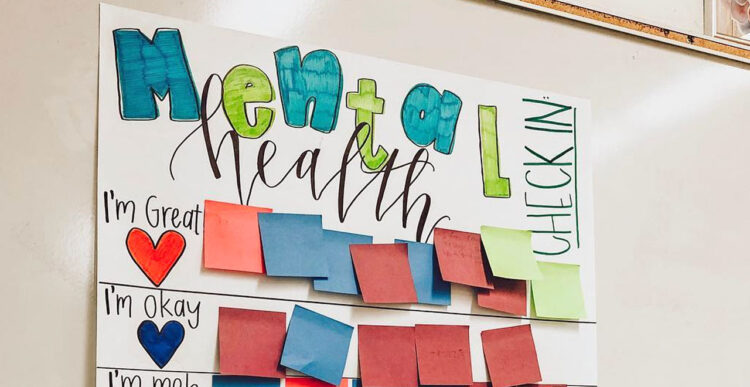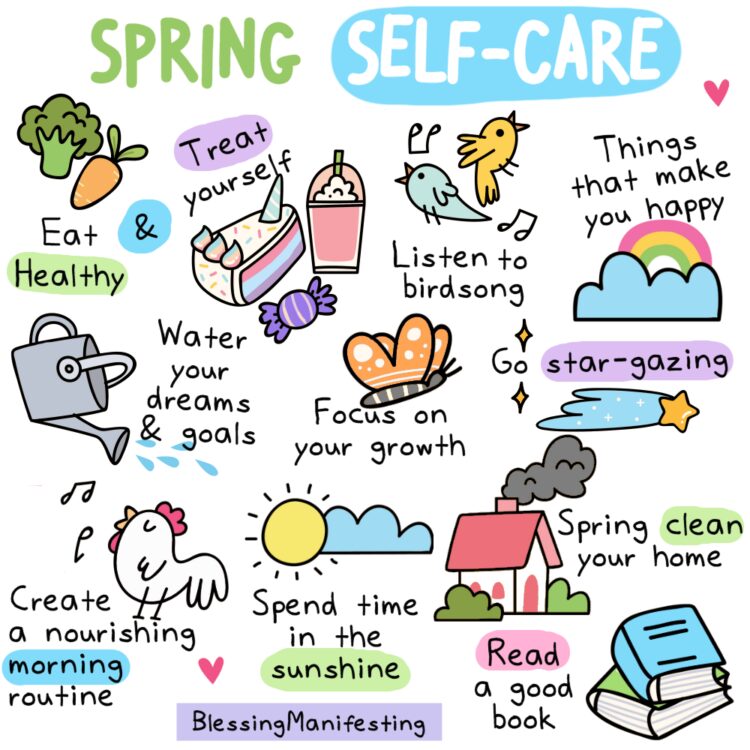The entire world is facing an unprecedented challenge due to the COVID-19 situation. The governments of all countries have had to take extreme measures to limit the spread of the virus. The schools, colleges, and universities have been closed as part of these extreme steps. As the schools are in lockdown, many students are dealing with trauma and anxiety due to the feeling of uncertainty.
The abrupt change in their lifestyle can trigger panic attacks, stress, and fear in students that can spoil their mental health. Thus, it becomes even more important for you, being a teacher, to support your students. Student welfare should be of utmost priority during these unprecedented times. Here are seven strategies that will help you prioritize the well-being of your students in a virtual setup.
Page Contents
1. Maintain a routine

Source: petersons.com
In the current tough times, it is important to provide a consistent routine to students for their studies. You can create a working schedule for your online curriculum. Share the schedule with the students before the course commences. Ensure that the students log into the class on time and complete the assessments and project work on time. Connect with their parents and request them to ensure that the schedule is followed to the dot. This structure and consistency will keep them disciplined and focused to complete their course requirements on time.
Humans are social animals, hence social interactions are important. During this lockdown, students aren’t spending any time with their peers as they would do in the classroom. Thus, it would be good, if you can keep the student engagement going in the online learning sessions as well. Maintain a connection with the students by following the below methods;
- Give freedom to students to participate in the virtual sessions.
- Divide students into mini-groups to complete the projects so that they get to work with their peers
- Let the students present their findings in the class so that everyone can learn from different problem-solving approaches their peers have used.
- Create discussion boards for your course where the students can post their doubts and help one another.
- Conduct one-on-one sessions with students to address their concerns or doubts so that they don’t feel left out in the class.
Visit here to know more.
3. Mental health check-in

Source: thedad.com
Talking about negative emotions helps in reducing stress and inner healing. By sharing thoughts, the physical and emotional distress of the person decreases, and he/she starts coping. While taking an online course, you can create a forum where students can check-in. Open communication will help you in gaining insights into student trauma and concerns. You can use emoticons for students to respond to your questions in a virtual setup. It will be a fun activity, and in-turn you will get an idea about their emotional state. Based on this information, you can reorient the online curriculum for them.
4. Teach gratitude
Focusing on what we’re grateful for distracts our mind from negativity. Gratitude improves the emotional, physical, mental, and social well-being of a person. So, teach students the art of practicing gratitude to put their mind in a positive state. Some ways to practice gratitude that you can teach to your students are:
- Ask them to share reasons they are grateful for attending the class. This will draw their attention to things they appreciate, thereby, bringing positivity in their lives.
- Create an appreciation circle for your students where they can openly share their thoughts.
- Teach them to appreciate themselves for who they are.
5. Creating a self-care plan

Source: medium.com
A self-care plan will help your student to reach out to their trusted person in case of a crisis. Ask your students to create their self-care plan. They will learn ownership and autonomy life skills by doing so. Ask students to identify their support structures and activities that help them feel happy. It could be a person or a simple activity like listening to music. If students are confused, then help them in creating this list. Being a tutor, if you know your student’s self-care plan, you can help them in getting through tough times.
6. Coping through Loss and trauma
Any kind of loss causes sadness and sorrow. It can happen due to the loss of a family member, friend, pet, job, or relationship. If any student goes through a loss, then he/she can feel negative emotions and can feel stressed or anxious. During this difficult time, you should be able to provide support to your students in case they face a traumatic loss event. Grief is a very personal experience, thus you can do the following:
- Talk to them to understand the reason for their anxiety or stress.
- Provide assistance to your students to help them cope with trauma.
- Build a trustworthy relationship with your students so that you can become their confidant.
- Standing with your students during these tough times will keep them motivated to continue learning.
7. Building resilience

Source: hbr.org
Resilience is the ability to steer through tough life situations and challenges. It helps in coping with stress and anxiety. You can promote resilience in your students by building their confidence and life skills. A resilient student will be motivated to move forward and will try to solve the problem rather than giving up in life. Give your students responsibilities in the class to teach them purpose and improve their social skills. Empower them to take decisions in the class and guide them in the correct direction.
Reward them for the improvements and progress that they have made. Do a course correction if they get derailed from their learning goals. Keep your online curriculum flexible to accommodate every student’s learning needs. Keep some time for open discussions along with regular course work while ensuring that the students are not overburdened with study-related activities. In short, take an optimistic teaching approach as no one is perfect.
Consistency, discipline, and support will help students cope with the current changing times and provide them a sense of stability. By doing purposeful communication, you can provide the support that your student needs.





